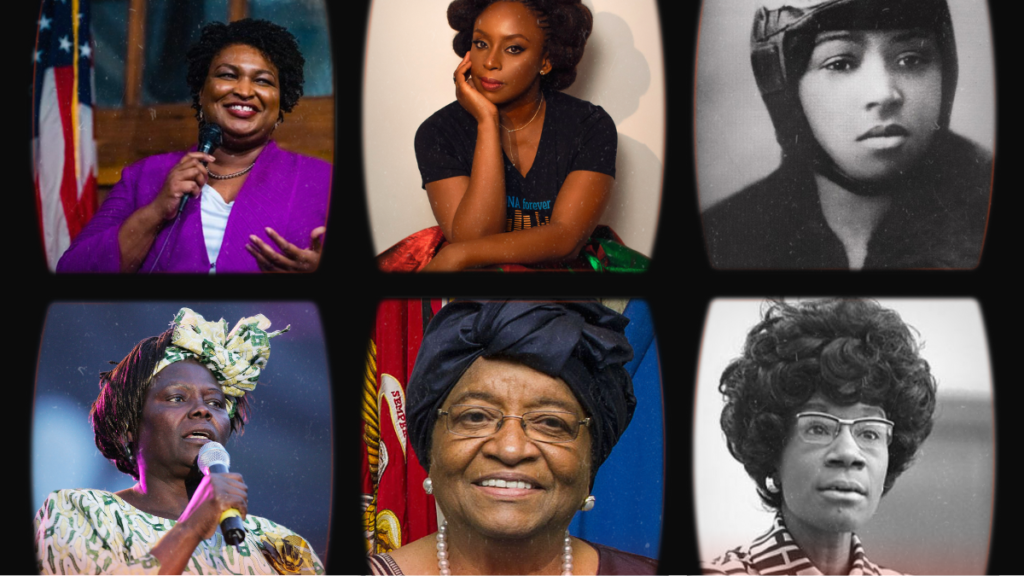International Black Women’s History Month is important to me because I am a Black woman and feel we don’t get the recognition we deserve. I had no idea that we even had a month! This is a moment for us to reflect on the struggles we have faced throughout history and to honor the contributions and accomplishments of Black women throughout. We must recognize the significant contributions that Black women have made to society globally as we commemorate International Black Women’s History Month throughout April. Black women have significantly contributed to moulding our world as scientists, artists, educators, and civil rights activists. The history of International Black Women’s History Month, the nations that commemorate it, influential Black women from around the world, and ways to celebrate will all be covered on this page. Let’s not just celebrate those that contributed to our history but celebrate all the women out there. We take on a lot!
The History of International Black Women’s History Month
The United States first recognized National Black Women’s History Month, commonly called International Black Women’s History Month, in 1987. The National Women’s History Project was founded to draw attention to the accomplishments made by African women throughout history. In the early 2000s, other nations, including Canada, the UK, and Australia, began participating in the event.
Many nations worldwide, including the United States, Canada, the United Kingdom, and Australia, commemorate International Black Women’s History Month.
Several Black women have made significant contributions to their respective disciplines worldwide.
Just a few are shown below:

The first African woman to win the Nobel Peace Prize was Wangari Maathai, who promoted women’s rights and environmental protection in Kenya.
- Chimamanda Ngozi Adichie is a Nigerian author whose books, such as “Americanah” and “Half of a Yellow Sun,” have won praise from critics and shone attention on issues affecting immigrants and women.
- Dr. Mae Jemison: A supporter of science education and the first African woman to travel to space.
- The first Black woman and woman of color to hold the office of president in Africa, Ellen Johnson Sirleaf, is the leader of Liberia. During her office, she strove to develop the nation’s economy, infrastructure, and healthcare system.
- Brazilian politician and activist Marielle Franco worked for the rights of LGBTQ+ and Black women. Despite being murdered in 2018, her memory still motivates social justice movements worldwide.
- Zulaikha Patel, a South African teenager, became a representation of opposition to discriminatory school regulations when she organized a demonstration against them. Young people all across the world have been motivated to fight for their rights through her advocacy.
- A feminist activist from Nigeria named Funmilayo Ransome-Kuti battled for women’s rights and against colonialism. She played a significant role in Nigeria’s fight for independence and was the country’s first female driver.
- Shirley Chisolm, an African-American politician, was the first Black woman elected to the US Congress. Moreover, she was the first Black woman and woman of color to run for president of the United States in a major political party.
- Environmental and political activist Wangari Maathai was the first African woman to win the Nobel Peace Prize. She is from Kenya. She established the Green Belt Movement, a group dedicated to preserving the environment and fostering community growth by planting trees.
- Stacy Abrams is an American novelist, lawyer, politician, and advocate for voting rights who served as the Georgia House of Representatives Minority Leader from 2011 to 2017. She was the driving force behind voter turnout in the 2020 US presidential election and created the voting rights group Fair Fight Action.
- Yamiche Alcindor- A journalist of Haitian descent who covers the White House for PBS NewsHour. She is a reputable journalist who has covered some of the most important topics of our time, such as the COVID-19 pandemic and the Black Lives Matter demonstrations.
Conclusion
In the United States, Black History Month was first observed in February 1970, where this month’s history can be found. International Black Women’s History Month was established after the focus widened to include the accomplishments and experiences of Black women. Even though Black History Month is not yet a recognized national holiday, continuing to celebrate and acknowledge it is a crucial step toward realizing the contributions and accomplishments of Black women globally.


